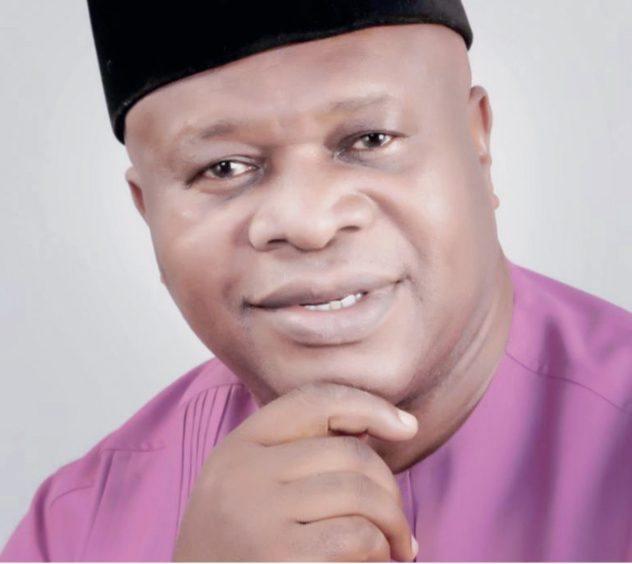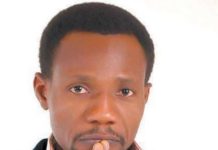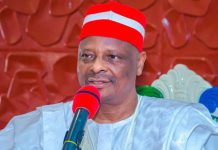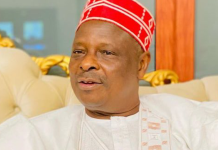Ndigbo have a lot of work ahead of them if they want to be president of Igbo extraction in 2023 – Okwuosa.
In Anambra State, Sir Azuka Okwuosa is a political force to be reckoned with. In the just-concluded Anambra governorship election on November 6, he ran as an APC candidate.
He has also served as the Chairman of the old Nnewi Council Area, as well as a former Commissioner in the state.
In this interview, Sir Okwuosa, who claimed to have been mentored by the late Dim Chukwuemeka Odumegwu Ojukwu, discussed Anambra politics, a president of Igbo descent, and Southeast infrastructural decay, among other topics. Excerpts:
Why hasn’t there been any comment from you since the governorship election on November 6 in Anambra State, in which you would have contested?
So, contrary to what you claim, I have not been quiet. What happened in my party’s primary election, the All Progressives Congress (APC), is, in my opinion, an internal problem that cannot be discussed in the pages of newspapers. That has always been my position. But, in terms of the external aspect, I believe the election has passed and the results have been announced. I’m also aware that the victor in every election is supposed to be applauded, while the defeated is supposed to agitate. And anyone who feels aggrieved has the right and privilege, as enshrined in the constitution of the Federal Republic of Nigeria, to go and ventilate and explore all legitimate and legal options available to him for redress. So, the reason I didn’t want to speak up is that I didn’t want to be accused of interfering with or jeopardizing an ongoing process. With my political experience, I believe that the most important aspect of the election is that it is a process. Following the election, an election petition tribunal is established. After that has been exhausted, the next step is the inauguration of a validly elected candidate. When all of the obstacles have been removed, someone will have been legitimately elected. I’m not implying that the election was not free and fair, or that it was untrustworthy. All I’m saying is that the court will have to decide. I don’t want to interfere with the legal system as it is. Naturally, the first thing I do after an election is congratulate the winner, but if I feel wronged, I can still contest it when I return to the drawing board. You may recall that when I ran for Senate in 2019, I went to court because I was not convinced that my opponent had won the election, and I fought it to the end. However, the interest of Anambra State takes precedence over our own personal interests in this case. I’m looking forward to a state that is supposed to be a role model in terms of leadership and everything else you can think of, and the only way to get there is for us leaders to come together, disagree to agree at times. At the end of the day, the most important thing is progress. So it’s not just about talking for the sake of talking. It’s all about getting the job done. I occasionally provided advice to those who were supposed to receive it. To do so, I draw on my previous experience. You know it can’t be found in the newspapers. The ultimate goal is for us to have good governance in Anambra State and for the state to remain in the enviable position for which it is known.
Read also: Atiku sends message to new Ohanaeze Ndigbo’s President-General, George Obiozor
Did you anticipate what happened at the primary level when you decided to run for office?
You’re aware that I’m being dragged into what I perceive to be a party internal matter. It’s a procedure. The procedure is straightforward. The party had a plan, an appeal panel, after the botched primaries. Following the appeal panel, a reconciliation committee was formed, consisting of around four governors, including the governors of Kogi, Jigawa, and Plataeu. Senator Ken Nnamani was present, as were other notables. The outcome is a party internal matter that I would prefer not to discuss in the media. Having said that, we thoroughly investigated everything. But, as I always say, I’m a party guy who believes in the party’s supremacy. It’s possible that you won’t always get what you want. If, at the end of the day, the party decides that this is the way it wants it to be, I will respect that decision as a loyal party member. I’m not going to participate in anti-party activities. No. That is something I will never do. The party’s internal issues are being discussed internally. And I prefer to express my grief through the party’s internal processes. But if it’s about the generality of political parties in Anambra State other than the APC, I’m happy to talk about it.
Would you still run for governor if it had been four years?
Well, I think the question is a little bit unnecessary because we had an election, and we have a winner, and the person has not even been inaugurated as governor, and you are talking about the next four years. Let us first pray for life, and then see how things turn out. Our next course of action will be determined by events. Because of the level of problems we have in Anambra State, which you can see, my entry into the democratic process for governorship in Anambra was borne out of necessity. Consider the state of our roads, the state of our infrastructure, and our inability to continue the governorships of Chris Ngige and Peter Obi. These things weigh heavily on my mind. I believe God has blessed me, and what better legacy can I leave to my generation than to volunteer? I have no business running for office if there is a credible leadership. People are expected to take responsibility for liberating their people in the absence of credible leadership, and I will never hesitate to do so.
Read also: Chief Justice of Nigeria issues a warning about judicial officer harassment
What are your thoughts on a Nigerian president of Igbo descent in 2023?
By all standards, allowing the Igbo to produce the next president of this country is the right thing to do; if you look at equity, the Southeast has been the most marginalized in terms of representation at the highest level of leadership in this country, at the presidential level. We have never had the honor of having a president from the southeast of Nigeria. When we had a parliamentary system of government in Nigeria, Dr. Nnamdi Azikiwe was a ceremonial president. The Prime Minister was in charge of the situation. As a result, we’ve never held an executive position in the traditional sense. Following the First Republic, democracy was disrupted due to military intervention. The North then produced a president in the form of Alhaji Shehu Shagari during the Second Republic, and after Shagari, there was another round of military intervention. Following that, President Olusegun Obasanjo gave the Southwest a shot. Following that, President Goodluck Jonathan gave the South-South a chance. Only the Southeast has never had the opportunity to hold that position.
Remember that the Southeast accounts for nearly a quarter of Nigeria’s population, according to census data from 1953 and 1963. According to the same census figures from 1953 and 1963, Hausa/Fulani made up one-quarter of the population, while the Southwest made up about one-quarter. And the entire minority, both north and south, accounted for one-quarter of the population. So only about a quarter of Nigerians have never had the opportunity to serve as president. Southeast residents must band together and assess our situation. What are the things that we haven’t been doing correctly, and how can we start doing them properly? Choosing a president necessitates collaboration with other zones. Before we can achieve it, we need to work with the South-Southwest, the Southwest, the Northeast, the Northwest, and the North-central. Even for Tafawa Belewa to become Prime Minister in the First Republic, the NPC and NCNC formed an alliance. That was the difference between him and Dr. Nnamdi Azikiwe, who was only a ceremonial President. There was an agreement between the NPN and the NPP for Shagari to be elected President of the Second Republic. Even the one that produced Obasanjo, as well as President Goodluck Jonathan, had the same arrangement. So we must do what is necessary, reach out to other zones, restore trust and acceptability, and we will succeed. It is natural to assert that it is our right, but we must also take action. Southeast, in my opinion, deserves to be given a chance. Of course, our fate is in our own hands. The time between now and 2023 is extremely short, but the task at hand is massive. The laborers, I believe, are present. So, if we all work together, we’ll see how far we can go, and I believe it’s possible.
What does this mean for the Igbo? As the Southeast strives to produce the next Nigerian president, aspirants in the North and other zones are preparing for the same presidency.
It is a matter of democratic liberty. I have no objections to it. Zik and Awolowo, as well as the other candidates, contested Tafawa Belewa’s election as Prime Minister. The People’s Redemption Party (PRP) of the North’s Aminu Kano also ran. There were five major presidential candidates in the Second Republic, with Awolowo representing the Southwest and Zik representing the Southeast. You had Waziri Ibrahim, Shagari, and Aminu Kano, I believe. It was won by a person who reached out. Abiola defeated Tofa in the one he won in 1993. Because he was able to reach out, Abiola was able to win. A president of Igbo descent cannot be produced solely in the Southeast zone.
Do you believe the current agitation by the Indigenous People of Biafra will jeopardize Nigeria’s bid for an Igbo president?
Read also: Bisi Daniels releases ten books at once that will boost children’s literature and provide variety for children
It is viewed from a variety of perspectives. However, I believe that there is a sense of unity. Agitation is also a part of the procedure. I’m aware that it has both merit and flaws. But the most important thing to remember is that no system can achieve perfection. The most important thing is that you should engage in proper political maneuvering. When Jonathan was elected president, there was militancy in the South-South. That changed with the arrival of Jonathan. The OPC was still wreaking havoc in Southwest Nigeria when Obasanjo became President of Nigeria. So, unless you’re talking about the peace of the graveyard, you can never have a very state of or absolute peace. People vent their rage, but equity can also help to quell it, and I believe that the election of a Nigerian president of Igbo descent will go a long way toward quelling most of the current agitations.
What are your thoughts on the Igbo philosophy of think-at-home? Isn’t it the best bet for the well-to-do in Igbo land to contribute to the zone’s development?
It’s not easy to say, “Let them come home and invest.” So, who said that? Is it the governor who has the authority to say so? There has undoubtedly been a rallying cry for people to return home and invest. However, before people can invest, certain fundamental indices must be in place. Infrastructural decay is the most serious problem in the Southeast, which includes Anambra State. You cannot have a meaningful investment in any aspect of Southeast state without infrastructural development. For example, because Michael Okpara, the then-Premier of the Eastern Region, was able to address the infrastructural problem, the South Eastern Nigerian region was able to flourish. What are the most pressing infrastructure issues? The Igbo have the ability to construct their own homes. The Igbo can construct their factories and estates if you provide the necessary infrastructure. Michael Okpara provided good roads, electricity, and water in the First Republic; water was almost always available in all towns and communities, and there were public taps. What we see today, however, are the relics of those things. And industries sprang up in Eastern Nigeria prior to the war. We had the iron and steel industry in Emene, the ceramic industry in Umuahia, and many other industries that grew and flourished. Even in the agricultural sector, farm settlements were established in some parts of the Southeast due to the availability of basic infrastructure. Okpara constructed the Oji Power Plant, coal was mined in Enugu, a functioning railway system existed, and everything was in order. The Amaraku Power Station was built in the 1980s by the late Governor Onunaka Mbakwe. That was more than four decades ago. In Imo State, he provided electricity. The majority of the infrastructure was demolished in a systematic manner. Industries are collapsing. Tempo Mills, Premier Breweries, J. Nwankwu Industries, and a slew of other businesses sprung up in the 1970s. There were many industries, but where are they now? Where is Nigercem, Emene Cement Factory, and all the other industries established during the Okpara regime? As a result of the lack of power generation, industries in the Southeast zone have struggled to thrive. They are no longer able to exist. How can those industries survive in the absence of power? That is where the collapse of industries begins. As a result, in order for people to embrace the think-home philosophy, you must meet their basic infrastructure requirements.
Join Television Nigerian Whatsapp Now
Join Television Nigerian Facebook Now
Join Television Nigerian Twitter Now
Join Television Nigerian YouTUbe Now





